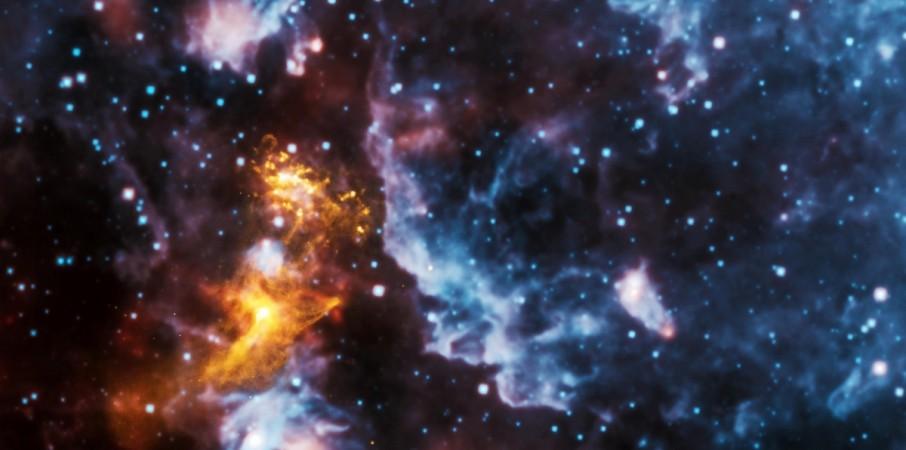
Remember those mysterious fast radio bursts (FRBs) from space that were so regular that we thought we were being probably hailed by aliens? Scientists have now reportedly located their origin, but are still divided on what their possible source is.
The FRBs were last detected at the Green Bank Telescope in the US and the Arecibo Observatory in Puerto Rico, according to an article in the Astrophysical Journal. Discovered only in 2007, FRBs are really fast radio signals that last for milliseconds and are detectable only with special equipment. Despite their small durations, they generate enough energy to rival the energy produced by the Sun in a whole day!
It was initially believed that that the signals were being produced as a result of two neutron stars colliding – a phenomenon that would possibly produce black holes. An alternate explanation claimed FRBs were coming from a single neutron star that was rotating with great power.
Now, however, scientists have managed to find the general location from where these FRBs are coming. "We now know that this particular burst comes from a dwarf galaxy more than 3 billion light-years from Earth. That simple fact is a huge advance in our understanding of these events," Cornell University's Shami Chatterjee, who presented the findings by him and his colleagues in the journals Nature and the Astrophysical Journal Letters, was quoted by a Eureka Alert report as saying.
Given the distance being talked about, it seems safe to say that the FRBs originated 3 billion years ago when the Earth was seeing the evolution of the first organisms that lived through photosynthesis. And there is a new theory – other than the colliding or spinning neutron stars and an alien civilisation doing the rounds.
This one postulates that the FRBs we have detected could be coming from magnetars – neutron stars with an immensely strong magnetic field. What creates these is still being investigated. Till then, the origin of the FRBs remain a mystery, despite its location being pinpointed.
















